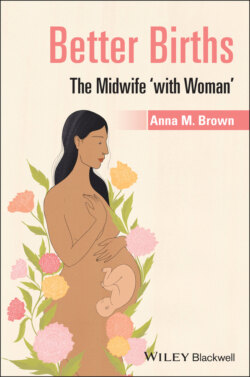Читать книгу Better Births - Anna Brown - Страница 28
Choices, Autonomy and Decision Making
ОглавлениеChildbearing women are entitled to make choices based on information and evidence provided by healthcare professionals in seeking the safest and best outcome during childbirth. On the other hand, midwives must consider relevant ethical principles that impact their autonomy in supporting childbearing women to make these choices. However, midwives as healthcare providers are held legally and professional accountable for the care they provide, not only within legal and professional regulations and frameworks, but also as primarily accountable to the woman and her birthing experience, their employing organisation and the community in which they practise (Jefford and Jomeen 2015). They are in a difficult position and must consider the consequences of their decisions, which places midwives in what is perceived to be a vulnerable position (MacLellan 2014). They may consider practising defensively, forgoing autonomous practice in the need to ensure that the accountability of midwifery practice is within the remit of ‘safe’ practice. Hastings‐Tolsma and Nolte (2014) identified this concept as ‘failure to rescue’, which has ethical implications for a midwifery philosophy that promotes normality in childbirth but results in ‘safe’ interventions during childbirth.
Women have the right not to be harmed when in the care of midwives, and care professionals will be liable in the law of negligence if harm results during childbirth (Griffiths 2011). On the other hand, midwives make decisions based on evidence and logical rationale, from a hypothetic‐deductive perspective, together with intuition resulting from experiences based on an intuitive‐humanistic approach (Smith 2016; Jefford et al. 2010; Jefford and Fahy 2015). However, ethical decision making ought to include the emotions and feelings, needs and wishes of the woman (Weltens et al. 2019), as a result of engagement in the mother–midwife relationship, to reflect cognitive beliefs of integrity and justice (Thompson 2005). Ultimately, Daemers et al. (2017) suggest that shared decision making is shaped by experience, intuition and individual circumstance and is influenced by knowledge, attitude towards the natural physiology of childbearing, centring the woman in the event and collaboration with other professionals.
The woman's sense of control and the ability to make choices is informed through their awareness of physiological processes in conjunction with organisational and resource limitations. However, more recently, authors have suggested that hospital culture and policies affect the way that information is presented (Newnham et al. 2017). In these situations, information is not truly unbiased and consequently women are unable to give true informed consent to care that affects their and their baby's outcome. Influencing factors, expectations of the midwife's role and perceived safety have an impact on choices women make – especially in first‐time mothers, as documented by Borelli et al. (2017). The authors suggest that choices such as choosing a place of birth are not influenced by women's perception of midwifery competence in different settings but by their preferences, prior knowledge and a need for a safe and fulfilling experience.
